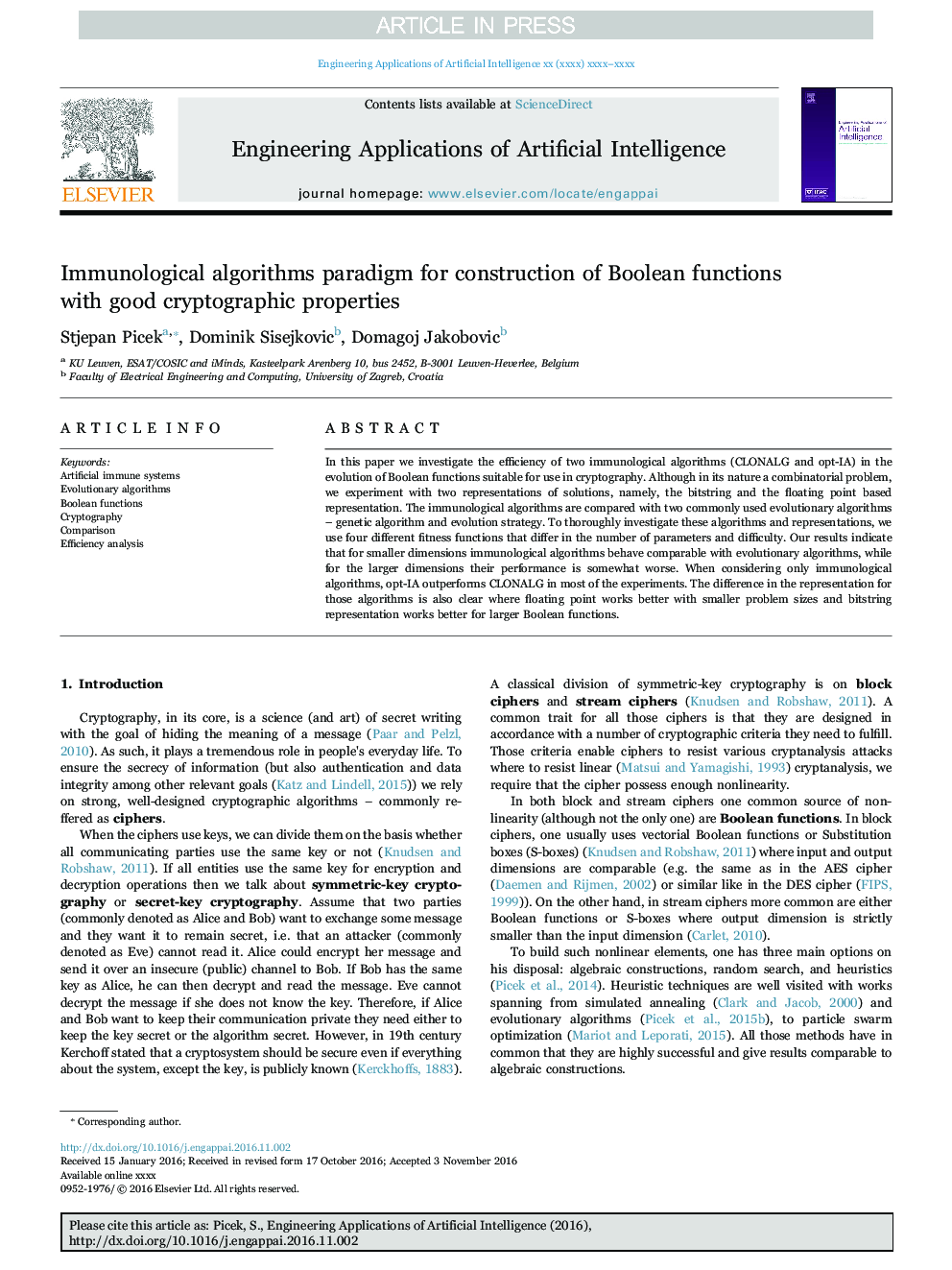| Article ID | Journal | Published Year | Pages | File Type |
|---|---|---|---|---|
| 4942754 | Engineering Applications of Artificial Intelligence | 2017 | 11 Pages |
Abstract
In this paper we investigate the efficiency of two immunological algorithms (CLONALG and opt-IA) in the evolution of Boolean functions suitable for use in cryptography. Although in its nature a combinatorial problem, we experiment with two representations of solutions, namely, the bitstring and the floating point based representation. The immunological algorithms are compared with two commonly used evolutionary algorithms - genetic algorithm and evolution strategy. To thoroughly investigate these algorithms and representations, we use four different fitness functions that differ in the number of parameters and difficulty. Our results indicate that for smaller dimensions immunological algorithms behave comparable with evolutionary algorithms, while for the larger dimensions their performance is somewhat worse. When considering only immunological algorithms, opt-IA outperforms CLONALG in most of the experiments. The difference in the representation for those algorithms is also clear where floating point works better with smaller problem sizes and bitstring representation works better for larger Boolean functions.
Keywords
Related Topics
Physical Sciences and Engineering
Computer Science
Artificial Intelligence
Authors
Stjepan Picek, Dominik Sisejkovic, Domagoj Jakobovic,
